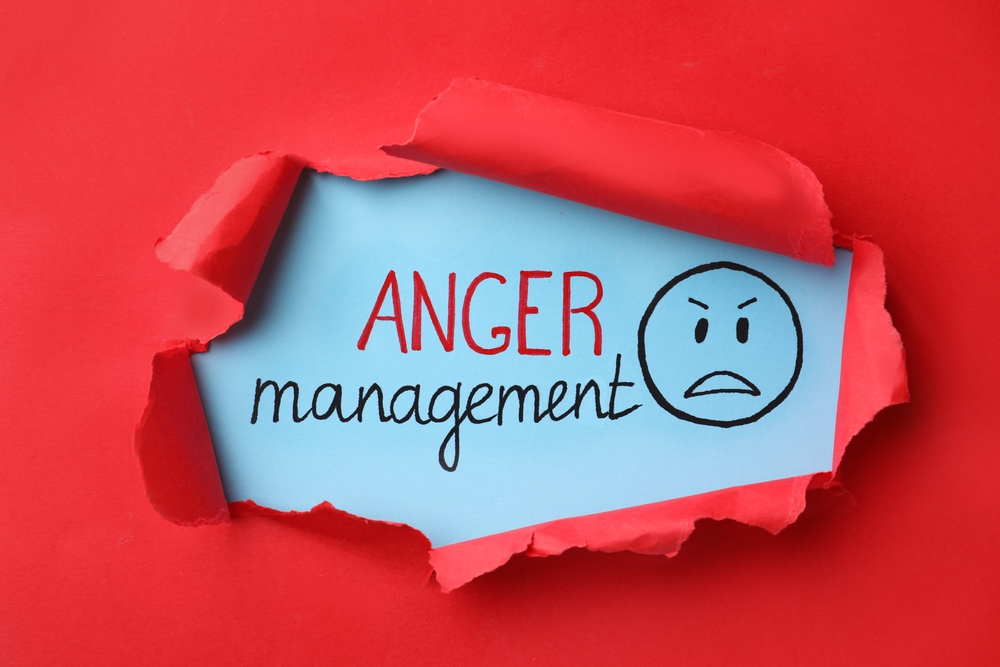Last Updated:
July 21st, 2025
Anger Management and Addiction | Support Options
What are anger management issues?
Anger is a natural emotion but when it starts to take control of a person’s life, it can become a serious issue. For some, anger erupts in outbursts that feel impossible to stop. For others, it lingers beneath the surface, showing up as passive-aggressiveness, emotional withdrawal or simmering resentment.
Anger management struggles don’t just affect one type of person, either. They can impact anyone, for example, children who haven’t yet learned how to express emotions, adults overwhelmed by stress or those carrying unresolved pain from the past. Even people who consider themselves easygoing can develop difficulties controlling anger when life becomes too much to handle.
The important thing to remember is that anger issues aren’t set in stone. With the right support, it’s possible to regain control of your emotions and, more importantly, your life.

Signs of anger management issues
Recognising the signs of anger management issues is crucial, as it can be the first step toward getting help. Identifying these signs early can open the door to support, making it easier to develop healthier ways to manage emotions before they lead to bigger problems.
- Frequent arguments or verbal outbursts: Getting into heated discussions, often over small things and finding it hard to de-escalate situations.
- Feeling constantly irritated or on edge: Small frustrations trigger strong emotional responses, leading to frequent feelings of annoyance or resentment.
- Reacting aggressively, either physically or verbally: This can include shouting, hitting objects, slamming doors or, in extreme cases, physical aggression toward others.
- Difficulty calming down after becoming angry: Even after the situation has passed, anger lingers, making it hard to let go and move forward.
- Holding in anger until it suddenly erupts: Bottling up emotions may lead to an eventual outburst that feels out of proportion to the situation.
- Using substances like drugs or alcohol to suppress anger: Many people turn to substances to “take the edge off” their anger, which can lead to dependency or addiction over time.
If anger starts to interfere with relationships, work or daily well-being, it may be time to explore healthier ways to manage emotions and develop coping strategies that prevent anger from escalating.
The link between anger issues and addiction
Anger and addiction are closely connected, often feeding into each other in ways that make both issues harder to manage. Many people struggling with substance use find that their anger becomes more intense when they’re under the influence or when they’re in withdrawal.
Studies have shown that individuals with high levels of anger are more likely to engage in verbal and physical aggression, which can damage relationships, lead to legal trouble and even push someone deeper into addiction. Cocaine users, for example, have been found to have significantly higher levels of aggression (40%), highlighting how certain substances can heighten emotional responses.
At the same time, addiction itself can be fueled by anger. Some people turn to drugs or alcohol as a way to escape feelings of frustration or resentment, using substances to numb emotions they don’t know how to process.
Over time, this creates a vicious cycle: anger leads to substance use, substance use leads to more anger and breaking free becomes increasingly difficult. That’s why treating addiction without addressing underlying anger issues can leave a major gap in recovery.
Do I need rehab for anger management and addiction?
If you’re struggling with anger management alone, rehab may not be necessary. Many people find that outpatient therapy is enough to help them develop healthier ways of coping with frustration. With the right guidance and commitment, it’s possible to work through anger issues without needing residential treatment.
However, when addiction is involved, the situation changes. Anger can be a powerful trigger for substance use, and without proper support, it can lead to relapse. Moments of frustration or emotional distress can make it harder to resist cravings, especially if alcohol or drugs have been used as a way to cope. In these cases, inpatient rehab provides a safe, structured environment where both addiction and anger management are treated together.

By addressing the root causes of both struggles, rehab helps individuals gain better control over their emotions and break the cycle of self-destructive behaviour.
How are anger and addiction treated in rehab?
To successfully overcome addiction and manage anger, both issues need to be treated together. If anger has been a long-term struggle, trying to recover without addressing it can leave someone vulnerable to relapse. That’s why inpatient rehab is often the best option. In a structured and supportive environment, individuals can focus entirely on their recovery without the daily stresses and triggers that might make things harder.
Detox
The first step in treating addiction is detox. Before a person can fully engage in therapy, their body needs to clear itself of the substance they’ve been dependent on. Detox helps manage withdrawal symptoms and stabilises both the mind and body, giving individuals a stronger foundation for the work that comes next.
However, just because the substance is out of their system doesn’t mean all their troubles have disappeared. Unresolved anger and emotional struggles don’t vanish with detox, which is why therapy plays such a vital role in recovery.
Detox stands as a crucial first step, however it is not a cure. It clears the path for the next step in the process, creating the mental clarity and physical stability necessary for individuals to begin addressing the deeper psychological aspects of addiction.
Therapy
Therapy is essential for tackling the deeper issues behind both addiction and anger. Cognitive behavioural therapy (CBT) is especially effective, as it helps individuals recognise the negative thought patterns that drive both substance use and angry reactions. By learning to spot these triggers, it becomes easier to respond to stress and frustration in a more controlled way.
Another approach, known as the Patrick-Reilly method, blends cognitive therapy with relaxation techniques such as deep breathing and thought-blocking.
This method aligns with rehab’s holistic therapies, such as yoga, meditation and mindfulness practices. By integrating these techniques, individuals learn not only how to process their emotions but also how to physically and mentally calm themselves when anger or cravings arise.
Aftercare
Recovery doesn’t end when rehab does, and aftercare services play a crucial role in helping individuals maintain progress. Ongoing therapy and relapse prevention strategies ensure that both addiction and anger management remain under control long after treatment. These services provide a structured way to navigate life’s challenges without falling back into old habits, offering guidance when stress or frustration arises.
Having continued support makes a real difference, helping individuals stay focused on long-term healing and personal growth.
Regular check-ins, support groups, and access to professional help reinforce the coping skills learned during treatment. This consistent connection to recovery resources reduces isolation and empowers individuals to stay committed.
What are the next steps?
Struggling with addiction and anger can feel overwhelming, but you don’t have to face it alone. Addiction Helper is here to guide you toward the right support, whether it’s rehab, therapy or advice tailored to your needs. A healthier future starts with one step. Reach out today for confidential help and reassurance.
Our compassionate team are ready and available to take your call, and guide you towards lasting the lasting addiction recovery you deserve.
Frequently Asked Questions
(Click here to see works cited)
- Zarshenas L, Baneshi M, Sharif F, Moghimi Sarani E. Anger management in substance abuse based on cognitive behavioral therapy: an interventional study. BMC Psychiatry. 2017 Nov 23;17(1):375. doi: 10.1186/s12888-017-1511-z. PMID: 29169338; PMCID: PMC5701421.
- Laitano HV, Ely A, Sordi AO, Schuch FB, Pechansky F, Hartmann T, Hilgert JB, Wendland EM, Von Dimen L, Scherer JN, Calixto AM, Narvaez JCM, Ornell F, Kessler FHP. Anger and substance abuse: a systematic review and meta-analysis. Braz J Psychiatry. 2022 Jan-Feb;44(1):103-110. doi: 10.1590/1516-4446-2020-1133. PMID: 33605366; PMCID: PMC8827371.

